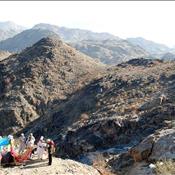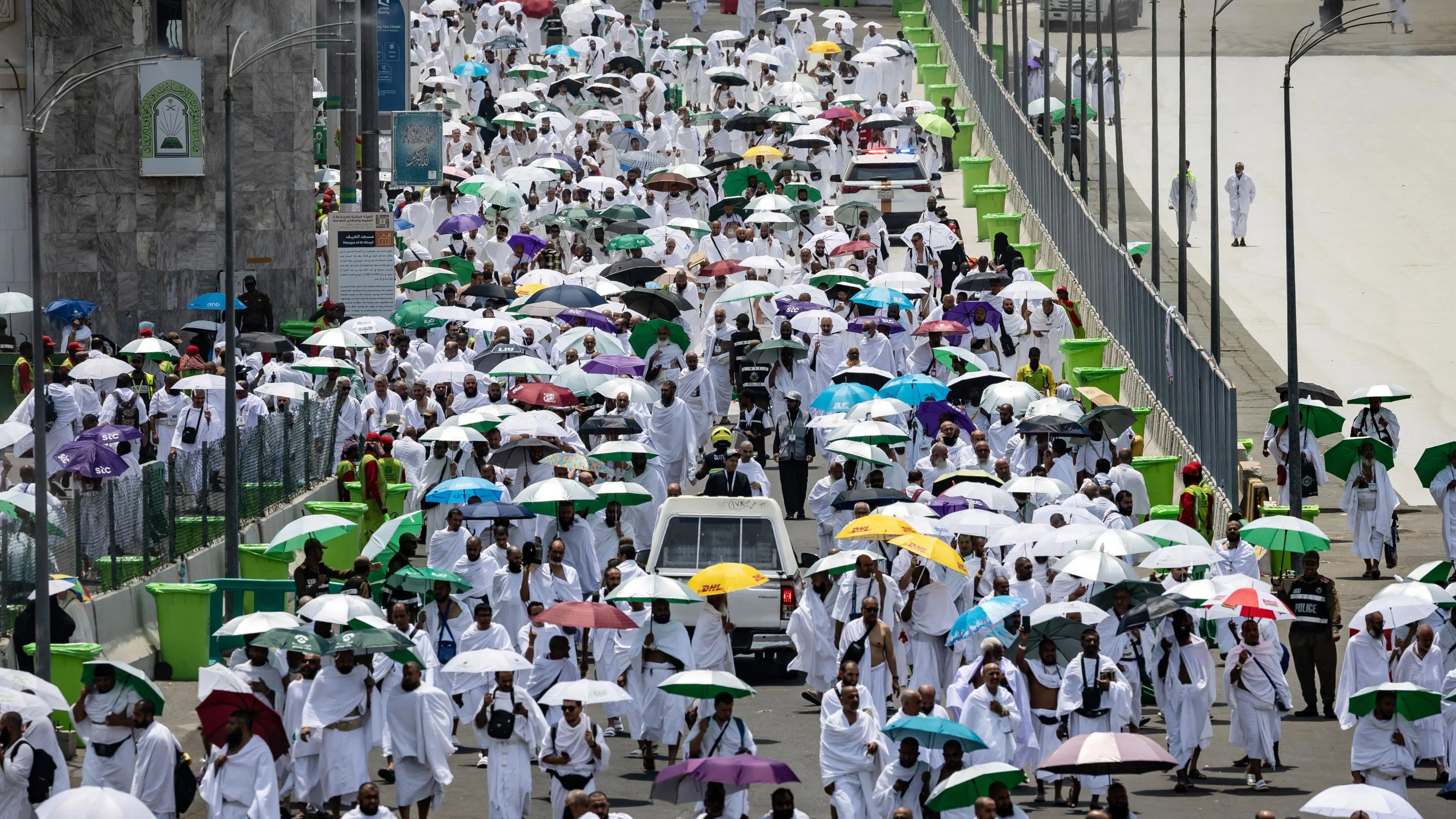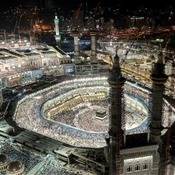
When images appear of a deceased pilgrim being prayed over in Al-Masjid Al-Haram with his face uncovered, many are left curious. Why is this done? Why is the body not fully shrouded like other Muslims?
The answer lies in the special rulings of Ihram and the guidance of the Prophet Muhammad ﷺ, who explained that a person who dies in Ihram — whether during ʿUmrah or Ḥajj — must be buried in their Ihram garments, with their head and face left uncovered. This is not only a ritual act but also a profound spiritual symbol of their final journey.
The Prophetic Guidance on This Practice
The ruling comes directly from the Sunnah of the Prophet ﷺ. In an authentic narration reported in Sahih al-Bukhari and Sahih Muslim, it is mentioned:
The Messenger of Allah ﷺ said about a man who died in Ihram:
“Shroud him in his two garments, and do not cover his head or face, for he will be resurrected on the Day of Judgment reciting the Talbiyah.”
(Bukhari, Hadith 1265; Muslim, Hadith 1206)
This Hadith establishes the timeless guidance that has been followed by scholars and pilgrims ever since.
The Significance of Ihram in Life and Death
Ihram is not just a set of garments — it is a sacred state of worship. When pilgrims enter Ihram, they accept a set of restrictions that symbolize humility and devotion to Allah. These include:
- Avoiding perfumes and scents
- Abstaining from cutting hair or nails
- Refraining from marital intimacy
- Not covering the head (for men) or face
If a pilgrim passes away while in this sacred state, these rulings continue to apply to him in death. Thus, his head and face remain uncovered, and he is buried exactly as he was in Ihram.
Why the Face and Head Are Left Uncovered
There are two primary reasons scholars highlight for this practice:
- Continuity of Ihram – The restrictions of Ihram do not end with death, as the person is still considered to be in that sacred state until resurrection.
- Resurrection with the Talbiyah – As the Hadith mentions, the pilgrim will rise on the Day of Judgment reciting the Talbiyah (Labbayk Allahumma labbayk…), a powerful testimony of faith and devotion.
This act preserves the pilgrim’s unique honor, distinguishing him from other believers in the Hereafter.
Spiritual Lessons for the Living
The death of a pilgrim in Ihram carries deep lessons for Muslims everywhere:
- A blessed ending (ḥusn al-khātimah): To die in the sacred lands, while in worship, is considered a great honor and sign of Allah’s mercy.
- Reminder of the Hereafter: Just as pilgrims prepare for Hajj by leaving behind worldly comforts, believers must prepare for death by focusing on faith and good deeds.
- Symbol of devotion: Remaining in Ihram even in death shows that a servant’s worship continues into the Hereafter.
Such moments remind us of the words of the Prophet ﷺ:
“Each person will be resurrected in the condition in which he died.”
(Muslim, Hadith 2878)
Real-Life Reflections
Every year, countless Muslims pass away during their pilgrimage. Their funeral prayers in Makkah or Madinah, their burial in Ihram, and their resurrection with the Talbiyah inspire awe and reflection among the living.
For families, it is a source of both grief and consolation — grief at the loss of a loved one, but comfort in knowing that Allah chose them for such an honorable departure.
The Broader Islamic Context of Shrouding (Kafan)
Normally, Islamic tradition prescribes that the deceased be washed, perfumed, and shrouded in plain white cloth. However, for the pilgrim in Ihram:
- Perfume is not used — because fragrance is prohibited in Ihram.
- The head and face are not covered — to maintain the restrictions of Ihram.
- Only the Ihram garments are used as the shroud.
This exception demonstrates the depth of Islamic law, which tailors rulings based on a person’s spiritual state.
A Dua for a Good Ending
Witnessing or learning about this practice serves as a reminder for all Muslims to pray for a good ending. The Prophet ﷺ himself encouraged asking Allah for a death upon faith and obedience.
🤲🏻 “O Allah, grant us a good ending and take our souls while You are pleased with us. Make our final words La ilaha illa Allah, and grant us resurrection among Your righteous servants.”
The uncovered face of a deceased pilgrim is not a mistake or oversight — it is the Sunnah of the Prophet ﷺ. It reflects the sacredness of Ihram, the honor of dying in worship, and the hope of resurrection in a state of devotion.
For believers, this practice is more than a ritual; it is a reminder to live and die in submission to Allah, preparing for the ultimate journey of the Hereafter.
;More Travel News
-
 03-Mar-2025Policy on Interfaith Harmony
03-Mar-2025Policy on Interfaith Harmony -
 28-Feb-2020Top 10 Ziyarat To Visit During Your Umrah Trip
28-Feb-2020Top 10 Ziyarat To Visit During Your Umrah Trip -
 23-Apr-2025Hajj Packages from Pakistan marred by monumental mismanagement and red-tape
23-Apr-2025Hajj Packages from Pakistan marred by monumental mismanagement and red-tape -
 16-Jan-2026Rabi-ul-Awwal Umrah Packages: Why Demand Surges Around 12 Rabi-ul-Awwal
16-Jan-2026Rabi-ul-Awwal Umrah Packages: Why Demand Surges Around 12 Rabi-ul-Awwal -
 19-Aug-2025Saudia’s Dream Sale: Up to 50% Off Sep–Dec Flights — Big Win for Pakistan’s Umrah Travellers
19-Aug-2025Saudia’s Dream Sale: Up to 50% Off Sep–Dec Flights — Big Win for Pakistan’s Umrah Travellers -
 10-Sep-2025Halal-Friendly Packages: Hotels & Restaurants for Muslim Travelers
10-Sep-2025Halal-Friendly Packages: Hotels & Restaurants for Muslim Travelers -
 09-Aug-2021Good News for UAE Residents wanting return to UAE
09-Aug-2021Good News for UAE Residents wanting return to UAE -
 11-Nov-2025Government Hajj Scheme 2026 Regarding 2nd Installment
11-Nov-2025Government Hajj Scheme 2026 Regarding 2nd Installment -
 23-Oct-2025Qatar Airways Lands Inaugural Flight at The Red Sea, Saudi Arabia
23-Oct-2025Qatar Airways Lands Inaugural Flight at The Red Sea, Saudi Arabia -
 17-Sep-2019How to Apply for Online Umrah Visa in Pakistan
17-Sep-2019How to Apply for Online Umrah Visa in Pakistan -
 21-Aug-2023Saudi Arabia Introduces New Flexibility in Visa Regulations for Foreign Residents
21-Aug-2023Saudi Arabia Introduces New Flexibility in Visa Regulations for Foreign Residents -
 16-Jun-2022Business class air ticket Rs.50,000 Tax Approved
16-Jun-2022Business class air ticket Rs.50,000 Tax Approved
